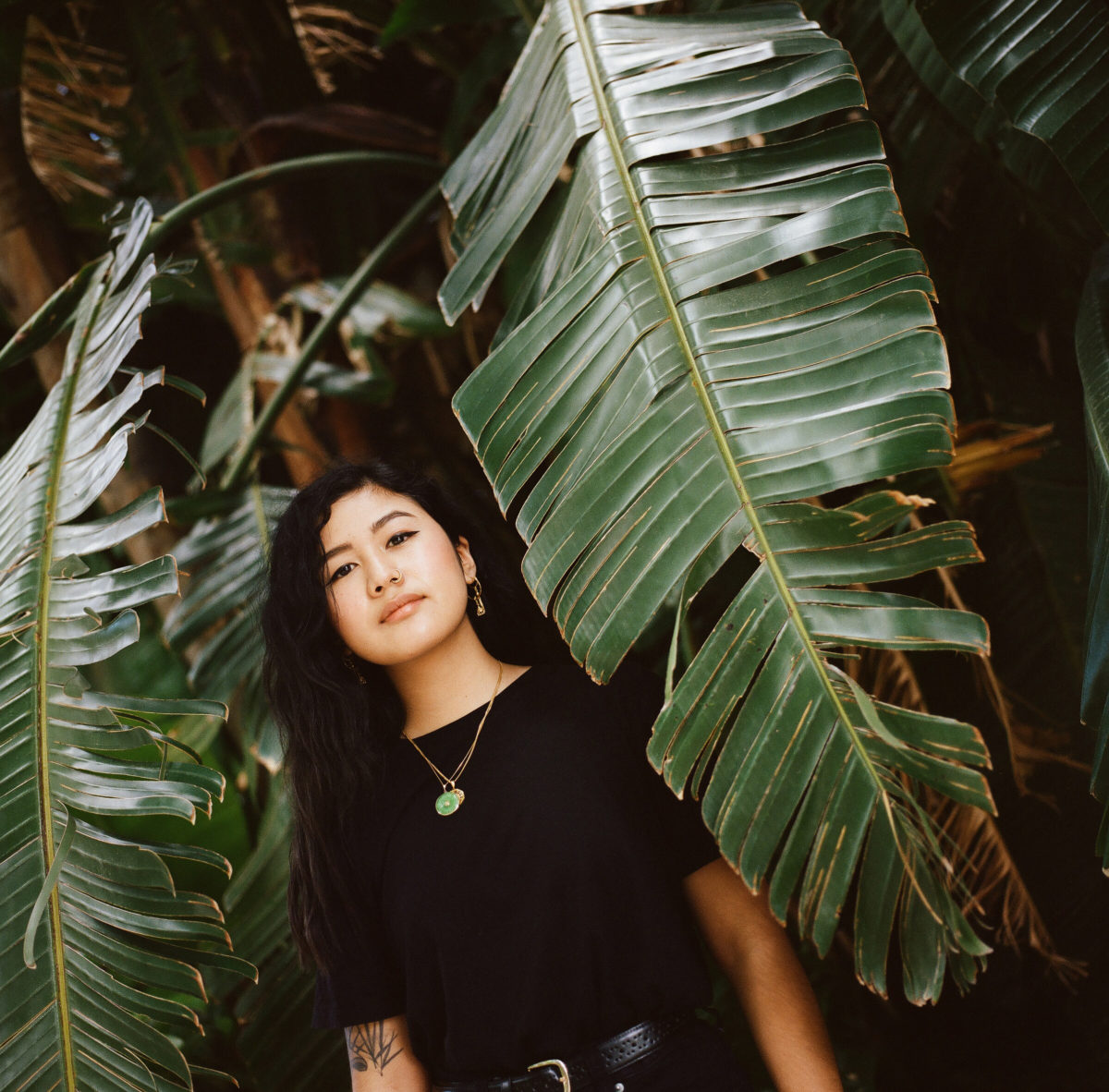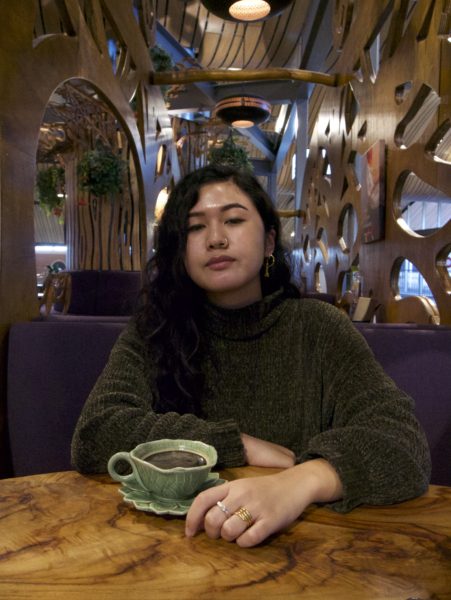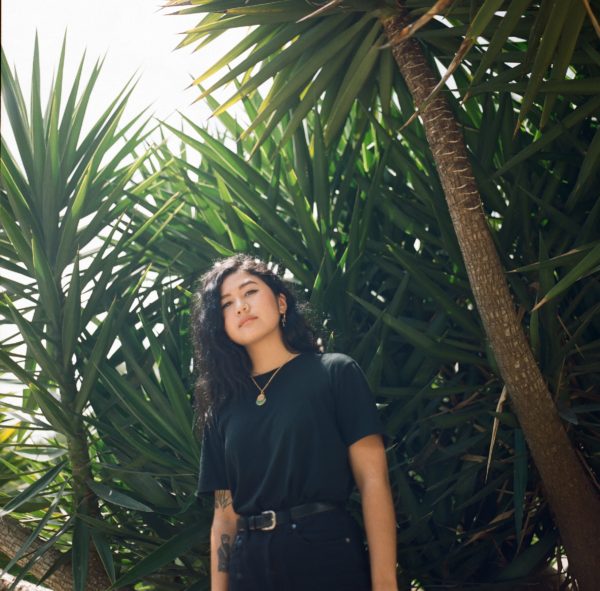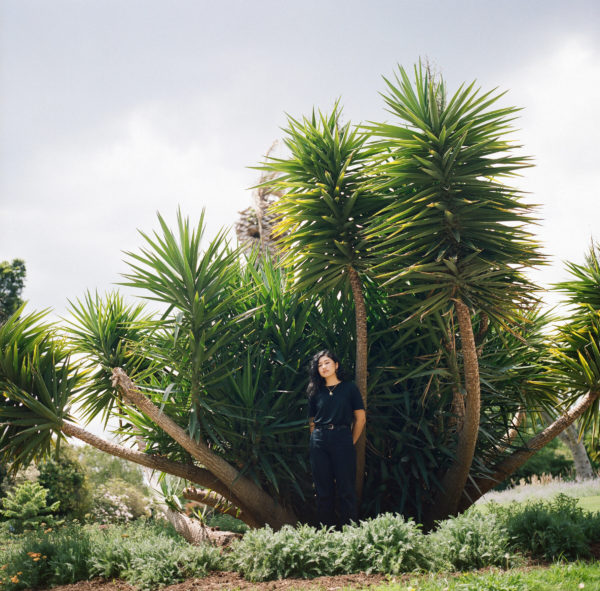
Mindy is an award-winning poet, editor of Peril Magazine and one of Queensland’s most outstanding young writers. Isabella Moore sat down with her to talk about cultural identity, her poetry and the current culturally diverse arts scene in Australia.
Can you tell us a bit about your cultural background and your upbringing?
My parents migrated from Malaysia a couple years before I was born. My father is Punjabi and my mother is Chinese, and when I was younger I never really knew where one [culture] ended and the other began. I guess everyone questions where or how they belong, and it can be something of a revelatory experience. I think the learning never stops. Your identity is such an intangible, ever-growing thing.

How does your cultural identity influence your writing and your poetry?
I wouldn’t say my poems are explicitly about my cultural identity. My poems are quite personal, so aspects of my identity will of course come into it because it influences the way I operate in the world. Sometimes I find writing specifically about my identity can feel performative – it can feel like something that I’m not writing for myself, but for the purpose of making others understand. I don’t sit down and think, “I’m going to write this poem about being Asian-Australian”.
That being said, my Honours thesis looked at how my own poems and the work of Eileen Chong spoke about food as a vehicle for cultural belonging. I wanted to talk about how both food and poetry allows one to navigate less-defined cultural structures. It made me wonder why we feel the need to belong to just one thing, and I feel so lucky to have this access to such a hybrid of cultures without putting pressure on myself to ‘belong’ to one more than the other.

Sometimes I find writing specifically about my identity can feel performative – it can feel like something that I’m not writing for myself, but for the purpose of making others understand.
How do you feel about the Australian culturally diverse arts scene at this current stage? As a growing space, what else do you think needs to be done to help culturally diverse artists?
There are many events, discussions and workshops centred on diversity in the arts, and I think the danger is that these events can end up erring on the side of being tokenistic. Of course, these discussions can be incredibly valuable, but I feel it’s important for organisers to be transparent about their intentions. Is it for them or us? I think it’s also necessary to acknowledge Indigenous erasure in the arts when—if not before—we speak about migrant-background cultural diversity.
But everything takes small steps first. I think the more it’s done the more it can be fine-tuned to be helpful to everyone, and not just being a diversity event for the sake of a diversity event.
I also sometimes have mixed feelings when journals publish a ‘diversity edition’. It can be wonderful in that it works to open up a window for editors to become familiar with and publish new writers, but I think it becomes a problem if, after the edition is over, the journals go back to the same stable of names they published before.
I feel so lucky to have this access to such a hybrid of cultures without putting pressure on myself to ‘belong’ to one more than the other.
Speaking of journals, can you tell us a bit about your role at Peril and how the magazine is contributing to culturally diverse arts?
Peril is a journal of writing, arts and culture centring around Asian-Australian voices and stories. I joined as an in-house writer at the end of 2016, and stepped into the role of Editor-in-Chief last year. While we don’t publish exclusively Asian-Australian writers, we focus on publishing work that is relevant to our majority CALD readership, and topics that address ideas beyond the ‘mainstream’ Australian context.
What I love about Peril in particular is that if you go to any kind of Asian-Australian event or space, more often than not you meet someone who has been involved with Peril in some way. I hope it continues to be a place where people are proud to call their first publication or first involvement in the arts. And with magazines like Pencilled In and Liminal the sense of community and celebration has only become stronger. If feels like there’s always someone you can reach out to for advice.

Do you have any regrets or lessons you’ve learnt throughout your writing career so far that you’d like to share?
I think there can be a desire to rush to get your work in the world, especially given the accessibility of the Internet and online publication. It’s incredibly exciting the first time you see your name in print, but I do wish I hadn’t published some things so early, when I knew they could have been worked on and made a hundred times better. I felt that if I didn’t have X amount of publications to my name, I wouldn’t be able to get this or that opportunity. Which is probably true, but if you’re going to put yourself out there, don’t you want to be at your best self? Someone probably told me this at the time but I didn’t come to this revelation until years later.
I think the danger is that sometimes the fact that you’ve been published feels like the achievement itself, when really the achievement should be whether or not you’ve made something that you’re proud to put your name beside. Your sense of worth should come from the work, not the recognition – though this is often much easier said than done.
I also sometimes have mixed feelings when journals publish a ‘diversity edition’…I think it becomes a problem if, after the edition is over, the journals go back to the same stable of names they published before.
Have you got any advice for aspiring writers, especially those who come from a CALD background?
Don’t be afraid to reach out to people and ask them for advice, or ask them how they’re able to be in the industry that they’re in. I always thought, ‘I wish I knew how that person did this or that’, but it never crossed my mind to ask them. In reality, almost everyone is open to having a chat even if just over email. From working with Peril I’ve learnt how close the community really is, and people whom a few years ago I wished I could have a conversation with are now more or less my peers, which I still find really weird. In short – get in touch with the people who you look up to, because you never know where it might lead.

More Mindy Gill:
